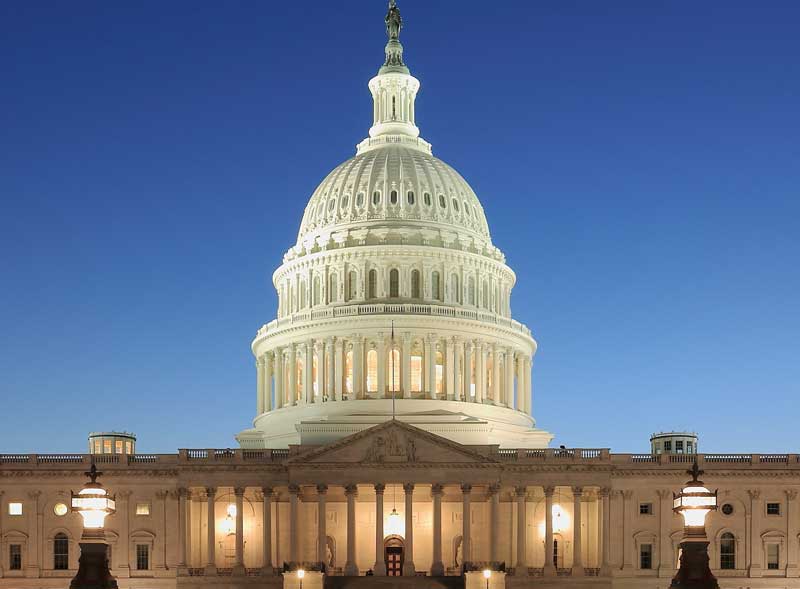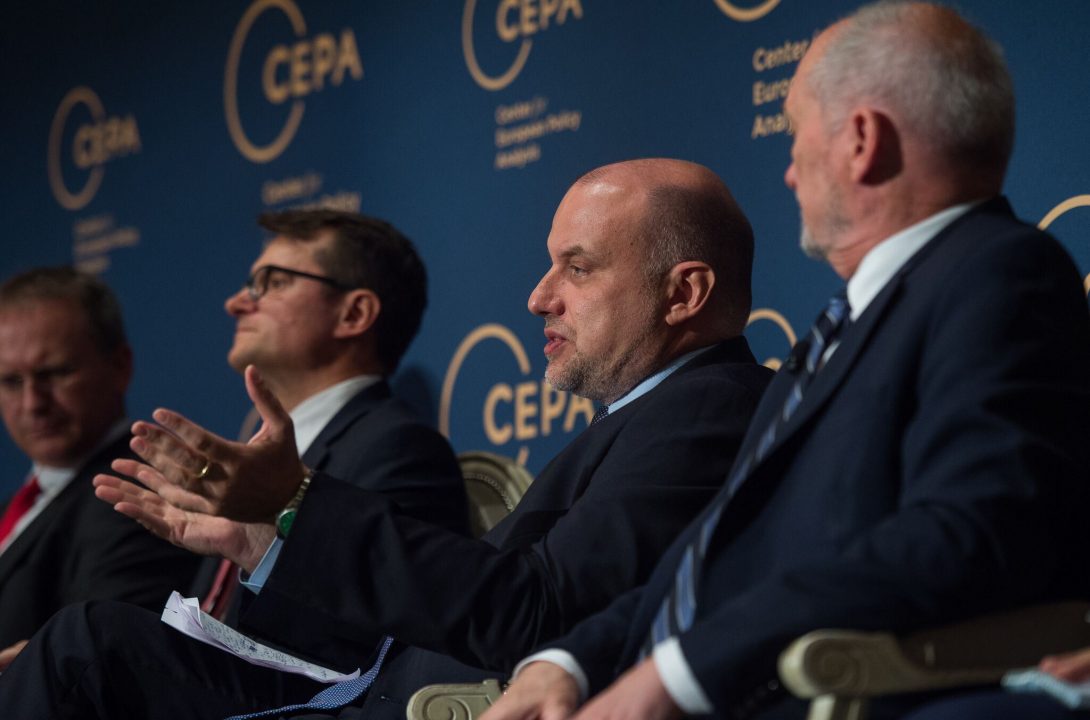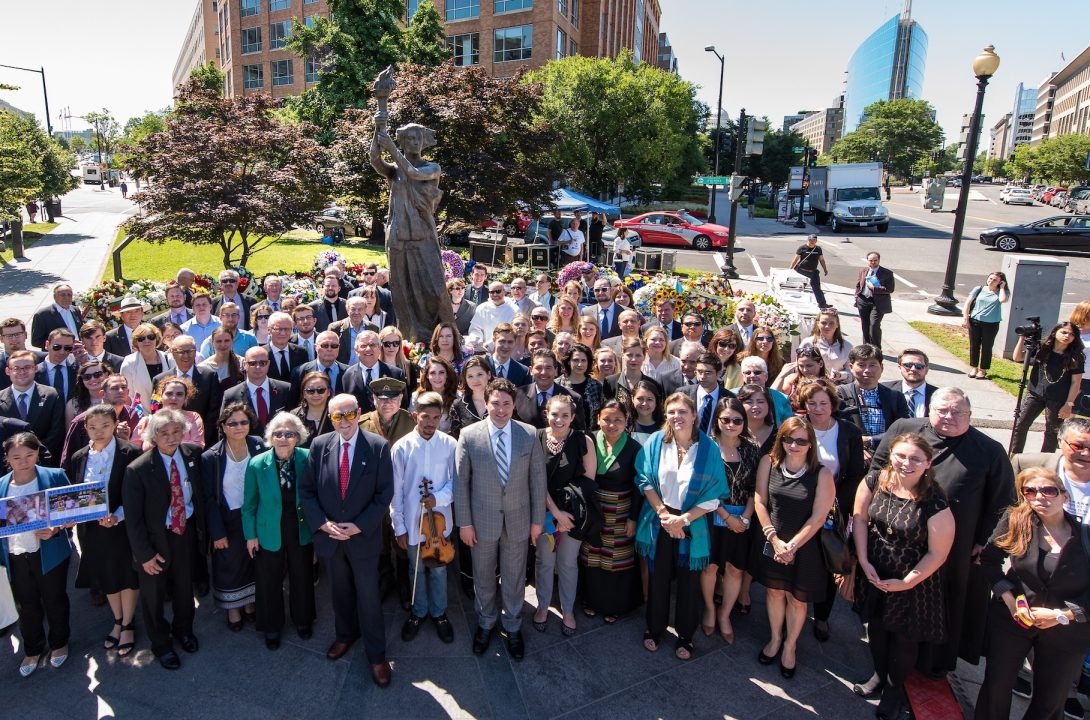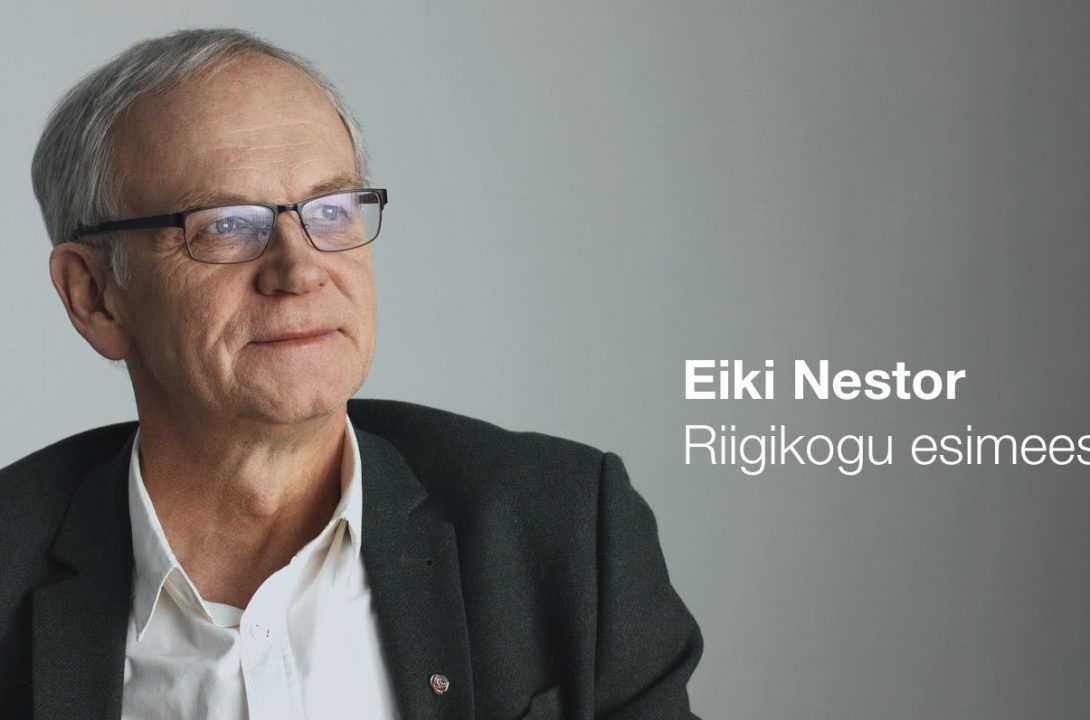
LEP 2018
October 11, 2017
Estonian Experts Weigh in on Transatlantic Policy
October 28, 2017– Karin Shuey, 8/15/17
Estonian American National Council representatives joined Joint Baltic American National Committee (JBANC) colleagues for a briefing from the Department of State (DoS) Baltic team on Friday, August 11th. The newly appointed Director of Nordic and Baltic Affairs, Ian Campbell, and desk officers for Latvia, James Lovell, and Lithuania, Carol Werner, shared their insights on policy and current and upcoming events relevant to U.S.-Baltic relationships.
The visit to Estonia by Vice President Mike Pence on July 30-31 was a main topic of discussion. Tallinn was his first stop on a European trip that also included Georgia and Montenegro. He addressed the three Baltic presidents and military troops from Estonia, the U.S., the United Kingdom, and France, serving in the Enhanced Forward Presence (EFP) in Estonia, at the Estonian Defense Forces headquarters in Tallinn. His remarks reflected the close relationship and keen understanding the Administration holds regarding security challenges in the Baltic region and beyond – a message that got stronger as his trip progressed. The vice president’s full remarks are posted on the White House Briefing Room Speeches & Remarks page for July 31st. Our State Department colleagues reported that the he was glad to also discuss a broad range of non-security issues, including Estonia’s EU presidency; energy, economic and financial cooperation; trade and investment; and collaboration on cyber security. The next opportunity for Baltic leaders to engage with the Administration will likely be at the United Nations General Assembly in September.
Russia was another major topic covered. The Zapad military exercise in mid-September is of concern to all and will be closely monitored. While confidence was expressed in the EFP’s ability to keep a close eye on the exercise, there was less certainty in Russia’s reporting of the numbers of troops taking part and what course of events the exercise scenario will take. Determination of any U.S. response will depend on observation of what actually happens, which EFP troops are well-positioned to do.
The DoS representatives emphasized that not all interaction with Russia is negative. While the Kremlin is not doing the right thing in basic international relations, most notably in its invasion of Crimea and violation of several nations’ sovereign borders, there are areas where maintaining good relations is important. Open channels of communication regarding our nuclear arsenals is critical to global security. Trade and cooperation on space programs are other examples where continuing dialog is good for both sides. The U.S. should be hard on Russia for violations of international law and other crimes, but it’s a complex relationship and we can’t close doors on all collaboration.
The recently-passed sanctions bill serves as a clear condemnation of Russia’s bad behavior. Congress is now in the process of negotiating how to implement the sanctions in concert with U.S. allies; what form it will take is still in question. It’s important to send a deliberate message of censure while understanding the economic partnerships involved. The U.S. will remain sensitive to those partnerships and will avoid putting them at risk throughout the course of implementation. One early indication that Russia is taking the sanctions seriously was their expulsion of U.S. diplomats in response to the bill’s passage in Congress. We can be optimistic that the sanctions will effectively deter future Russian transgressions.
Other priorities discussed included energy security and the campaign against disinformation. Even with proposed budget cuts to State’s Global Engagement Center, propagating objectivity through public diplomacy will remain a mainstay of the embassies’ missions. There are multiple funding streams and many levels of approach that will keep combatting disinformation a top priority. Energy independence also remains a major concern and DoS will continue to support a competitive market with access to options so no nation’s energy will be controlled by a single source.
Finally, our DoS colleagues expressed awareness of the importance of the Baltic nations’ centennial celebrations next year. They are fully confident that each embassy will be involved with programs and events supporting its host nation’s milestone. The State Department is also looking at options for recognizing 100 years of Baltic independence and will keep us informed as their plans develop. They clearly share the same concerns for Baltic security that EANC and JBANC are engaged in daily and we appreciate their continued support.




